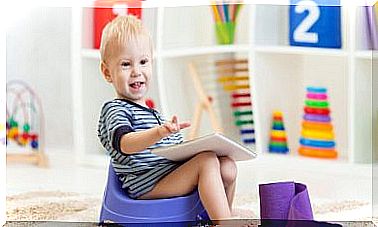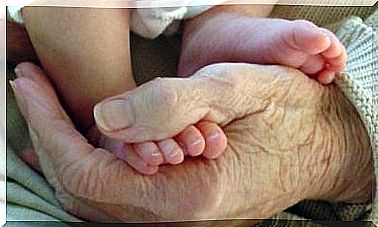The Importance Of Your Child’s Answers

Children are naturally curious. They are in full discovery of the world and, therefore, they are frequently asked questions, some, by the way, the most curious. Sometimes we are busy or distracted and we use any excuse to get our bodies out. However, the answers you give your child are of great importance.
So the information you provide and the attitude with which you do it will help determine parts of your child ‘s personality and self – esteem . So even though we are sometimes tempted to offer a vague or ambiguous answer, we have to be careful how we react to children’s questions.
listen to their questions
It is true that in our day to day we have numerous obligations and, however, little time to fulfill them. That’s why we are always in a hurry and we can’t always allow ourselves a break to talk in depth with our children. However, it is important to convey to children the idea that their questions are important, that their curiosity is valuable.
Perhaps they may question us at an inappropriate time, but it is recommended that we commend them for their initiative and return to the conversation later. Also, when we have the time, we should sit down with the child and give him our full attention.
A gesture as small as valuing, answering and giving importance to your questions will grow a positive image of yourself.

In this way, she will understand how positive it is to question the workings of the world and want to know more about it. She will begin to feel that she is a valuable and interesting person, as Mom and Dad are very considerate of what she says.
Sincerity in the answers you give your child
When sharing information with children, it is important that it be truthful. Clearly, we must tailor the message to their age and cognitive abilities . However, it is preferable that our answer is sincere.
In this way, our children’s trust in us will be established and we will be a model of honesty for them. In addition, they are more likely to feel able to open up to us if, from the beginning, we have fostered a relationship of closeness and sincerity.
Whether we are talking about general culture (for example, with the dreaded question: ( “where do babies come from?” ) or if we are referring to our own feelings ( “why are you crying, Mommy?” ), choose to an honest answer is the best way.
It is more beneficial for a child’s intellectual and emotional development to receive an adapted version of the reproduction than to hear the ancient story of the stork.
Likewise, it will be more enriching to know that Mom is crying because at that moment she is sad and this is a normal emotion, than to receive in response a “nothing” that will make her even more confused.
In this same line of sincerity, if we do not know the answer to any of the children’s questions, it is better to admit it naturally and propose that you seek the answer together. That way, by doing this, we’ll teach her about research resources, like using a dictionary or looking up a book that talks about the subject in the library, for example.

Encourage the child’s critical thinking
Whenever you can, try to provide children with answers that make them use their imagination and intellect. Sometimes it is more enriching to be helped to come up with the answer for yourself, rather than receiving the answer on a platter.
Finally, invite the child to express what he thinks about the questions themselves, what answers they consider possible. Also, ask for her opinion on what you’ve told and encourage stimulating conversations between you.
Be careful about the answers you give your child
Asking is one of the resources that children use to build their conception of the world around them. As parents, we are your main referents. That’s why it’s so important to be careful how we react and respond.
It is in our hands to help the child to develop a strong self-esteem, to convey that he is intelligent, creative and capable. Likewise, with our answers, we will lay the foundations of our bond, basing it on trust or lack of interest.
Finally, we must let our words be a guide, but also let the child be the one who experiences, discovers and finds information.









